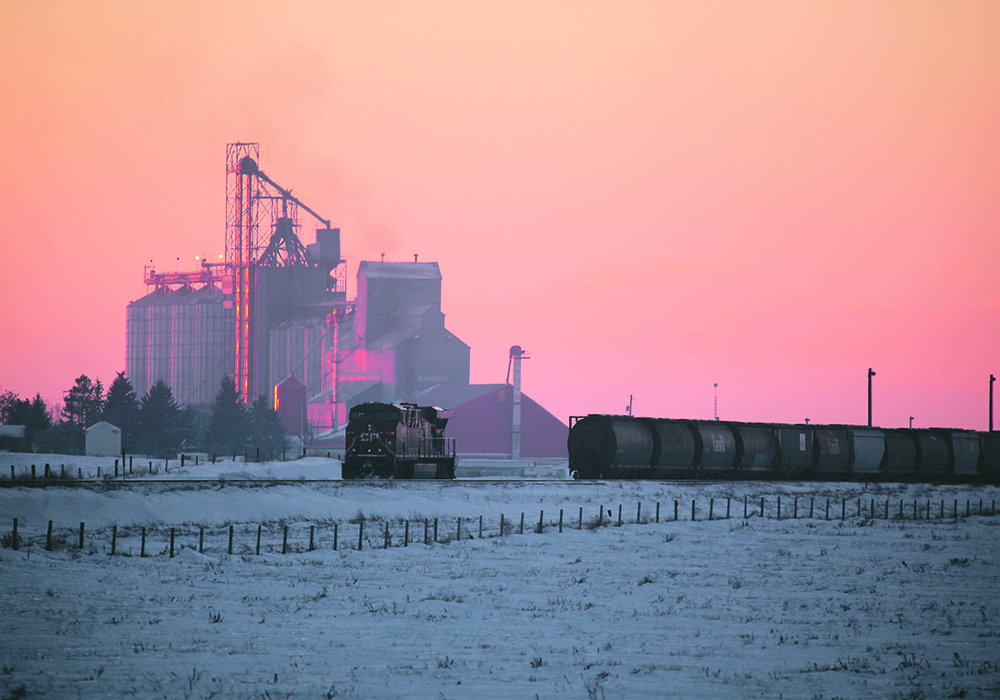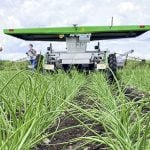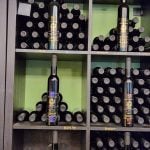Grain handling companies hope railways can keep up the pace, but worry about loading problems at port caused by rain
Repairs on a critical rail bridge connecting Peace Country producers to the main Canadian National Railway line are complete, while overall grain shipments are in record territory as winter descends on the Prairies.
The Oct. 5 fire on the CN branch line’s bridge near Grande Cache, Alta., stoked fears of a lengthy delay in shipments from the region’s only rail connection but the company filled in the span in a little more than a week, allowing trains to run again.
David Przednowek, CN’s assistant vice-president for grain, said not only was the company able to address the issue but its overall shipments of western Canadian grain broke a company record before winter gripped the Prairies.
Read Also

Manitoba beekeepers battle for survival
Honeybee colony losses have hit 43 per cent, making 2025 the latest in a string of poor bee survival years for Manitoba’s honey producers
CN set a single week record for volume of western grain shipped in October and also broke the company’s monthly record with 3.3 million tonnes moved.
That doesn’t mean all is well, however, as heavy rain created a bottleneck at west coast ports.
Przednowek was bullish on the company’s winter plan for this upcoming year and for the new management at CN.
“We’ve got a new CEO (chief executive officer) in town,” said Przednowek, referring to Tracy Robinson, who took on the position earlier this year. “She has put a new set of eyes on the business, asking a lot of questions and coming out of that are fundamental and consequential changes as to how CN approaches railroad operations.”
The company has increased the number of kilometres cars are running daily to levels not seen since 2016, he said.
It’s a trend Przednowek said is indicative of a back-to-basics approach the company has adopted.
When it comes to winter operations, Przednowek said CN is doing more to pre-emptively trouble shoot issues to allow for increased capacity, on top of infrastructure investments.
That includes automated track inspection of rail cars, which can be run within a standard load. Those cars can detect issues at track speed without the need to shut down the line. The company has also invested in acoustic bearing detectors at five locations on its lines to pick up the sound of failing rolling stock.
“You want to find problems before they occur,” he said. “Mainline capacity is precious. We don’t want to have a disruption.”
Wade Sobkowich, Western Grain Elevator Association executive director, said CN’s performance this year has been encouraging and he hoped to see delivery consistency over the winter.
“We need CN to keep this pace. It’s very important that they do. But we’re pleased, I would say in a broad sense, with the rail service we’ve been receiving from CN,” said Sobkowich.
Despite that, the later-than-usual harvest on the northern Prairies, combined with heavy rainfall on the West Coast, has caused loading issues at ports.
“The timing was a little bit off,” Sobkowich said about ships in port and grain deliveries that are now dealing with weather issues as loading in the rain poses its own logistical challenges.
“We can still unload rail cars — that’s not the issue. The issue is getting those vessels loaded and cleared and en route to the customers,” he said. “We need a solution to loading in the rain. There has got to be a solution. Other ports do it.”
One of the issues is safety measures in place at the Port of Vancouver requiring enhanced regulations for loading via feedholes.
Przednowek said such issues highlight the need for all players in the supply chain to work toward improving the system.
“Yes, terminals are struggling right now. The waterfronts in Vancouver in particular, unfortunately, (are) not able to keep up with the rest of the supply chain and many terminals are experiencing space issues,” he said. “That means CN is staging a lot of rail traffic at the origin or along the route that cannot move forward because there is nowhere to take it right now.”
Przednowek said CN’s U.S. Midwest grain shipments to the Gulf of Mexico coast are going well and could hit previous high water marks this year.
















